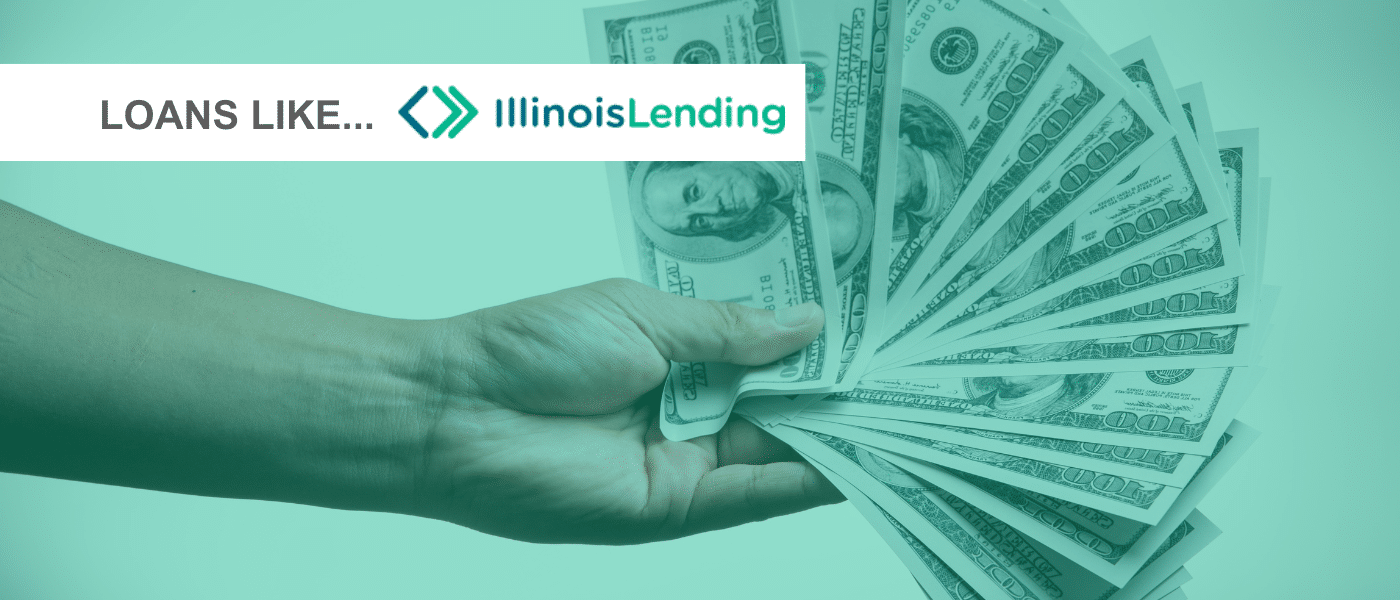A 401(k) loan will not affect your credit scores or any part of your credit.
As many people know, a 401(k) is a company-sponsored retirement account that an individual can contribute to get things started. In most cases, a company will add or match to that account as long as you work for them. Whether you have a standard 401(k) or an after-tax dollars 401(k) account, you should be able to borrow from it.
These loans can be a great way to borrow your own money if you need emergency funds. 401(k) contributions are growing faster for those who consistently contribute. A study from the Employee Benefit Research Institute revealed that from the end of 2016 to the end of 2020, the average 401(k) account balance for regular participants for 401(k) accounts consistently increased, exhibiting a compound annual growth rate of 19.4%.1
If you are thinking of a 401(k) loan, you may be curious about whether it impacts your credit; the good news is that it doesn’t! Below you will find more information on how these loans work and why they don’t have any impact on your credit score or show up on your credit report. You’ll also learn more about the different advantages and disadvantages of 401(k) loans and their alternatives.
Why Won’t 401(k) Loans Affect Credit?
When you borrow money from a comparable consumer loan, such as payday loans or personal loan options, a few different steps will impact your credit.
When you initially apply, lenders will look at your income (after your income is taxed rather than taxable income) and your credit score. This pull of your credit will affect your credit score. If you are approved for the loan and decide to take it out, the lender will report that new loan amount to the credit reporting agencies. Then how you make your loan payments will also be reported to the credit bureaus and be a part of your credit history. Making on-time payments will help your credit score while missing payments or defaulting on a loan will harm your credit score.
With a 401(k) loan, you will be borrowing money from yourself. And so, since you are getting loan funds from your own account, you won’t have to go through the same process as a traditional loan. That means there is no lender that reports to the credit bureaus when you apply or make your loan repayments. If you default on the 401(k), it won’t be a part of your credit report and history, but you will have to pay income taxes on the outstanding loan balance.
More Details on a 401(k) Loan
As mentioned above, the basic definition for a 401(k) loan is that it helps you borrow from your 401(k) retirement savings account. If you are thinking about this option, the first thing you need to do is find out whether your plan lets you borrow from it. Sometimes, you may be unable to and have to look at other options to borrow funds. Additionally, to borrow from your 401(k) plan, you will need to have a balance.
Do You Pay Interest on 401(k) Loans?
Yes, you will have to pay interest on your 401(k) loan as you pay it back. However, unlike a traditional loan that has a lender, you are borrowing from yourself, which means that you will be paying yourself in interest and principal. Just like a traditional loan, there will be a timeframe to make those monthly payments.
Is There a Limit on How Much I Can Borrow With 401(k) Loans?
Yes, there can be limitations on how much you can borrow from a 401(k) loan. Obviously, the amount in your 401(k) account will impact how much you can borrow. Most 401(k) retirement accounts limit you to 50% of your vested account balance, or $10,000, whichever is the greater amount. There is a limit of $50,000 you can borrow from your 401(k), even if your balance is high enough to borrow more than that amount.
How Long Do I Have To Repay My 401(k)?
If you do decide to borrow from a 401(k) loan, you can have up to 25 years to repay the loan if the loan is being used to buy a primary residence. Generally, most people repay their loan in about 5 years or so.
What Will Interest Look Like?
With a 401(k) loan, the interest rate will be pretty similar to other similar loans on the market. Looking at the average interest rates for a personal loan or another type of unsecured loan option will give you a pretty good idea of what to expect with interest rates on a loan.
What Can I Use One of these Loans For?
A 401(k) loan can be used for almost any purpose; here are some of the common reasons that people take out one of these loans:
| Common Uses for a 401(k) Loan | Description of the Uses for a 401(k) Loan |
| Buying a house. | 401(k) loans may be used to cover a portion of the cost for a home purchase, typically for the down payment or closing costs. |
| Paying bills and expenses. | These loans can be used to manage unexpected or high bills, such as medical expenses, car repairs, or even regular monthly bills in times of financial stress. |
| Early debt payoff | They can be used to consolidate or refinance existing debt, which can be especially helpful for high interest debt like credit cards. |
| Covering medical expenses. | A 401(k) loan can assist in paying for medical bills, treatments, or procedures when insurance coverage is insufficient or unavailable. |
| Down payment for making a large purchase, such as a car. | Can be used to secure a down payment for big-ticket items like cars or other significant purchases. |
| Making home improvements and repairs. | An option for financing home renovation and repair projects, enhancing the value and comfort of your property. |
| Vacation expenses. | You can use this loan for financing a vacation or travel plans when you don’t have the cash readily available. |
What Happens if I Leave My Current Job With a 401(k) Loan?
You’ll have a few options if you leave your current job while you have a 401(k) loan. You will have to repay your loan by the tax-return-filing due date for that tax year. This includes any extensions. You can also decide to roll that loan over into another eligible retirement account.
Is It a Good Idea To Borrow From a 401(k)?
Early withdrawal from your retirement fund and investment account, such as a 401(k), can have pros and cons. Here are a few things to think about before deciding to take out one of these loans:
- Borrowing from yourself means paying yourself back rather than another lender.
- You will get a better interest rate with a 401(k) than a comparable option if you have bad credit.
- If you cannot pay back your loan, you won’t have money left for your retirement, which can be a huge financial issue. Saving money for retirement is crucial!
- Any loan, including a 401(k) loan, can lead to having too much debt to pay each month.
- If you cannot pay back your loan, you will end up paying taxes on the unpaid amount.
- It can slow down contributions to your retirement account.
Alternatives to a 401(k) Loan
A 401(k) loan may not be an option for everyone or may not be accessible. The good news is that other options can work well as an alternative; here are some financial products to consider:
A Home Equity Loan or Home Equity Line of Credit
A home equity loan allows you to borrow funds from the value you have in your home. Because these loans are secured, you don’t need a great credit score. Depending on the equity in your home, you could get thousands of dollars with the right loan.
A home equity line of credit is similar to a home equity loan in that you borrow from the equity in your home. However, unlike a loan, where you get the funds in a lump sum, you will get a credit line which you borrow from as you need.
A Personal Loan
A personal loan is one of the most versatile loan options available. They can be short-term or long-term loans, ranging in funding from a few hundred dollars to thousands. You can use a personal loan for almost any expense, including paying monthly bills, medical costs, car repair, down payment on a large purchase, etc. In most cases, there are bad credit loan options available as well. Most of the time, these loans will be repaid in steady monthly payments.
Credit Cards
Credit cards are some of the popular borrowing options out there. You’ll need good credit with these revolving credit options, especially if you want to borrow a considerable loan amount. As you repay your credit cards, you’ll be able to use the funds again, which can be pretty convenient. However, this convenience also sometimes can lead to a cycle of debt.
Consider a Taxable Withdrawal
A taxable withdrawal is an alternative you can consider to a 401(k) loan. With this, you will be just taking out the funds from your 401(k) account but won’t have to repay it. In most cases, this withdrawal will be taxed, and there are a handful of things you should consider before going down this route. However, if you are facing financial hardship and need fast funds, this can be an excellent option.
FAQS
The maximum amount you can borrow is typically based on your vested account balance. Most plans allow you to borrow up to 50% of your vested balance, with certain limits in place.
Yes, borrowing one of these loans will impact your retirement savings. While you’re essentially borrowing from yourself, you might miss out on potential investment gains during the loan period.
If you default on your loan, the outstanding loan balance is considered a distribution. This means you’ll owe income taxes on that amount, and if you’re under 59 1⁄2, you might also face early withdrawal penalties.
Loan payments are typically made through payroll deductions. Since you’re borrowing from yourself, these payments aren’t reported to credit bureaus, so they don’t appear on your credit report or impact your credit score.
No, since you’re borrowing from your own savings, there’s no credit check involved, and the loan won’t be reported to credit bureaus.
The interest you pay on a loan goes back into your account, essentially paying yourself. This can be beneficial, especially when compared to high interest rates on some consumer loans. However, you might miss out on potential investment returns.
If you fail to make loan payments, the outstanding balance might be treated as an early withdrawal. This can result in income taxes and potential penalties if you’re under the age of 59½.
Payments are added to your account as you pay your loan balance. While you’re paying interest, it’s essentially going back into your retirement savings, unlike traditional loans, where the interest goes to the lender.
The Bottom Line With CreditNinja: How a 401(k) Loan Affects Your Credit
A 401(k) loan will not affect your credit in any way. This is because you will be borrowing money from yourself rather than a lender. Since you are essentially the lender for your loan, there won’t be any communication between a credit bureau. The only consequences you will have if you don’t pay back your 401(k) loan is that you won’t have that money in your retirement account when it is time to retire, along with paying taxes on the unpaid loan amount.
If you don’t want to borrow from your 401(k), the good news is that there are several alternatives you can look into. Personal loans, home equity loans, credit card options, and taxable withdrawals are available. No matter what option you choose, definitely research the ins and outs of these loans! You can start with CreditNinja’s blogs.
References:
1. EBRI/ICI Study Shows Significant Growth in Account Balances for Younger 401(k) Plan Participants Who Consistently Participate | ICI
2. 401(k) Loans: 7 Things To Know About Borrowing | Credit Karma






